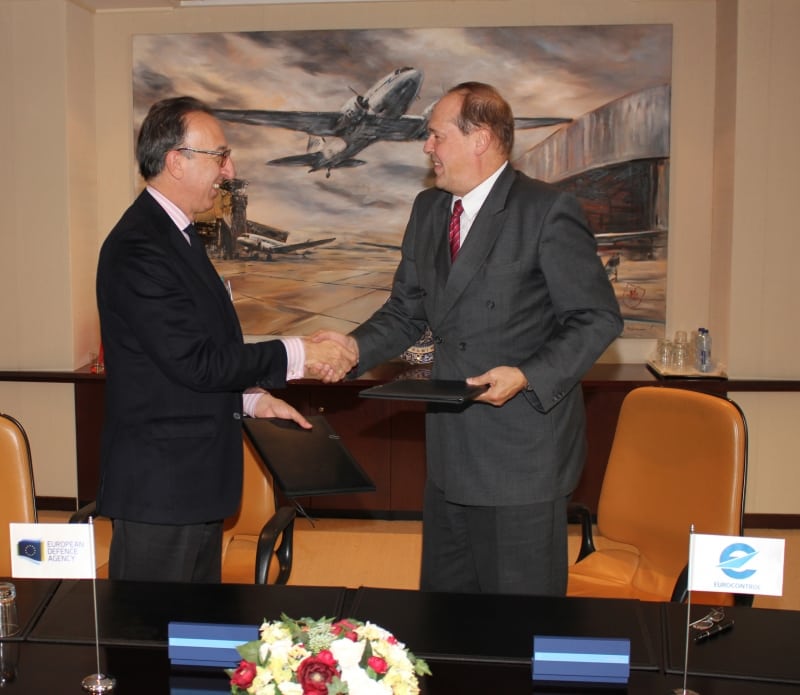 |
| Jorge Domecq, chief executive of the European Defence Agency, and Frank Brenner, director general of Eurocontrol, after signing an agreement to cooperate on SESAR. Photo: Eurocontrol |
[Avionics Magazine 11-18-2016] Eurocontrol and the European Defense Agency (EDA) have begun to consolidate cooperation on the Single European Sky ATM Research (SESAR) program. The cooperation is the result of a 2013 agreement struck between the two entities. In compliance with the initial agreement, the cooperative work has been updated by the two organizations for the years 2017 and 2018 in order to accommodate the tasks as defined in the SESAR 2020 program.
Eurocontrol and EDA have been working closely together since 2008 to ensure improved coordination and cooperation between civil and military air traffic, moving towards a Single European Sky for both military and civil air transport. This newest work program makes Eurocontrol’s expertise in civil-military Air Traffic Management (ATM) coordination available to EDA to facilitate EDA’s role regarding the coordination of military views in the context of the Single European Sky (SES) and its interface toward European Union (EU) institutions.
During the implementation of the previous joint work program, the EDA-Eurocontrol cooperation worked to harmonize military inputs to the 2015 ATM Master Plan update campaign, supported member states bidding for EU co-financing in Innovation and Networks Executive Agency (INEA) calls and provided technical impact analysis on the SESAR deployment program and EASA regulatory material under development.
“To preserve military access to all airspace, it remains essential that we develop harmonized low-cost interoperable SESAR solutions, including standardization and certification processes, and that we provide common mitigation actions,” said Jorge Domecq, chief executive of the EDA. “Moreover the deployment phase of SESAR offers an opportunity for the military, to avail itself of funding to enhance their ATM technology, when appropriate. This has already been the case for INEA Call 2015, whereby 14 military projects submitted through EDA have been awarded funds adding up to a total of $56.5 million, which is roughly 10.5 percent of total funds awarded.”